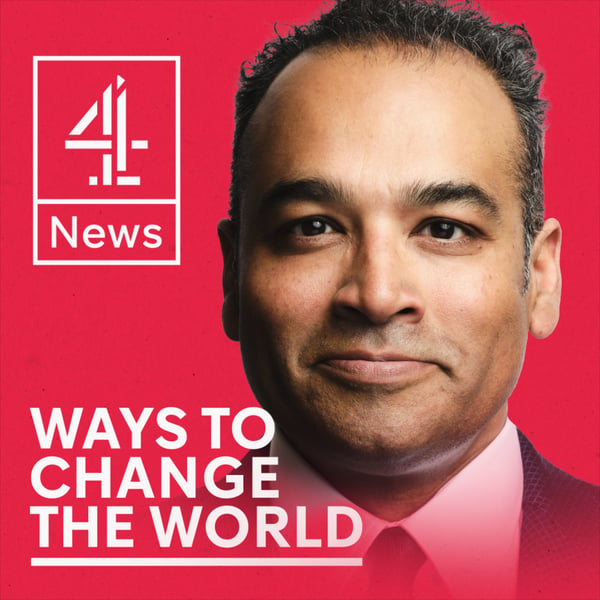Rob Delaney on the loss of his son, supporting the NHS and swimming
Ways to Change the World with Krishnan Guru-Murthy
Channel 4 News
4.6 • 1.1K Ratings
🗓️ 11 November 2022
⏱️ 39 minutes
🧾️ Download transcript
Summary
Rob Delaney is a comedian, actor and writer, best known for co-creating the British sitcom Catastrophe, which won him a Bafta for comedy writing.
But during the height of his success, he learnt that his son, Henry, was dying of a brain tumour. He’s written a book about it in which he grapples with the fragility of life, the mysteries of death, and the question of purpose for those left behind.
In this episode, Rob joins Krishnan to talk about his new book, ‘A Heart That Works’ and why he felt it was important to tell his family’s story.
Produced by : Imahn Robertson and Nina Hodgson
Photo Credit: Southbank Centre
Transcript
Click on a timestamp to play from that location
| 0:00.0 | Hello and welcome to Ways to Change the World. I'm Krishnan Gurumurthy and this is the |
| 0:08.6 | podcast in which we talk to extraordinary people about the big ideas in their lives |
| 0:13.0 | and the events that have helped shape them. I guess this week has somebody I've been |
| 0:17.1 | trying to get on for years and I sent my message about three years ago, I think, and I'm |
| 0:22.7 | delighted to say we've finally gotten. Rob Delaney is famous to most people I suppose |
| 0:29.1 | as a comedy actor. He's a comedian, a writer, a political activist and he's written a very |
| 0:37.5 | emotional book called A Heart That Works about losing his son to a brain tumor and it's |
| 0:48.4 | a very emotional work and Rob has been out promoting it on TV and radio and you've been making |
| 0:53.5 | people cry. I mean, it must be very, very strange doing a sort of a book promotional |
| 0:58.0 | tour for something like this that's so emotional. I mean, how are you? |
| 1:01.1 | Well, thank you for asking. I'm doing okay. I knew it would be hard to promote this book, |
| 1:07.8 | but I knew that in the writing of it, it felt like a healthy process. You know, it helped |
| 1:14.2 | me organize some thoughts and realize some things that were very helpful to me. So the writing |
| 1:20.2 | of it was a good thing, even though it wasn't easy. I knew that I wanted it to be out there |
| 1:26.8 | for people because I know that from my own experience that a bereaved parent just kind |
| 1:32.7 | of showing you how they did things can be very helpful to other bereaved parents. So I'm |
| 1:37.9 | no better, no worse than any other bereaved parent. So if I have something to offer, it'll |
| 1:43.1 | likely be of use to other people who've been through enormous pain. So there's a good |
| 1:47.9 | thing there and a good thing there in the middle is putting it out there. That's difficult |
| 1:52.6 | because yes, I'm proud of the book. Yes, I want people to read it, but it's difficult |
| 1:58.0 | to informal settings. Talk about Henry, my beautiful son, who died. Yeah, there's a |
| 2:06.4 | book, you know, trailing after him among many other things, feelings and questions and |
... |
Please login to see the full transcript.
Disclaimer: The podcast and artwork embedded on this page are from Channel 4 News, and are the property of its owner and not affiliated with or endorsed by Tapesearch.
Generated transcripts are the property of Channel 4 News and are distributed freely under the Fair Use doctrine. Transcripts generated by Tapesearch are not guaranteed to be accurate.
Copyright © Tapesearch 2025.

